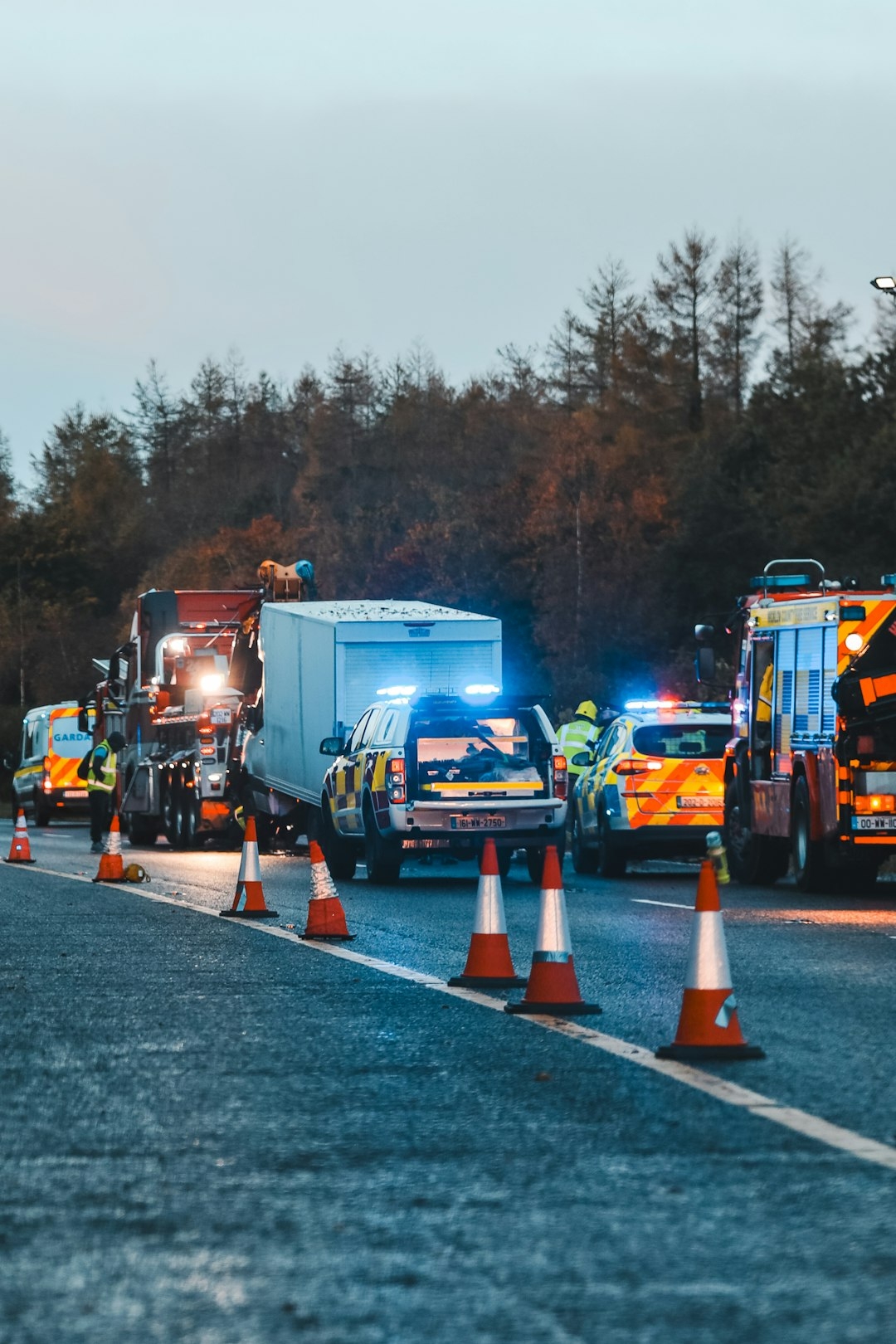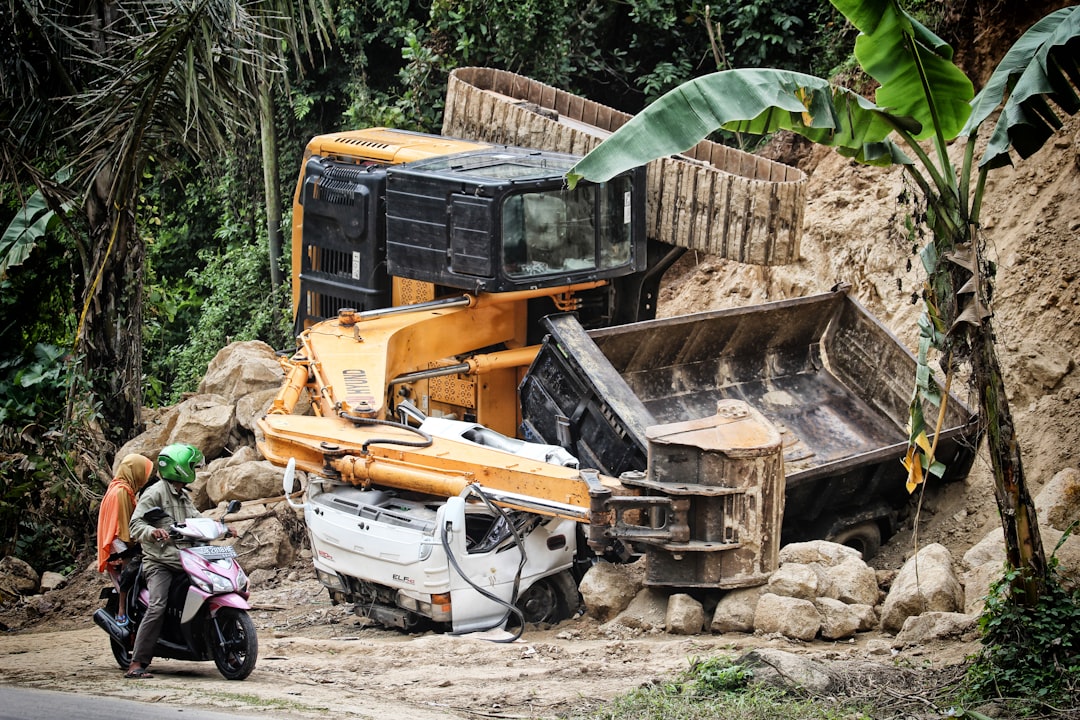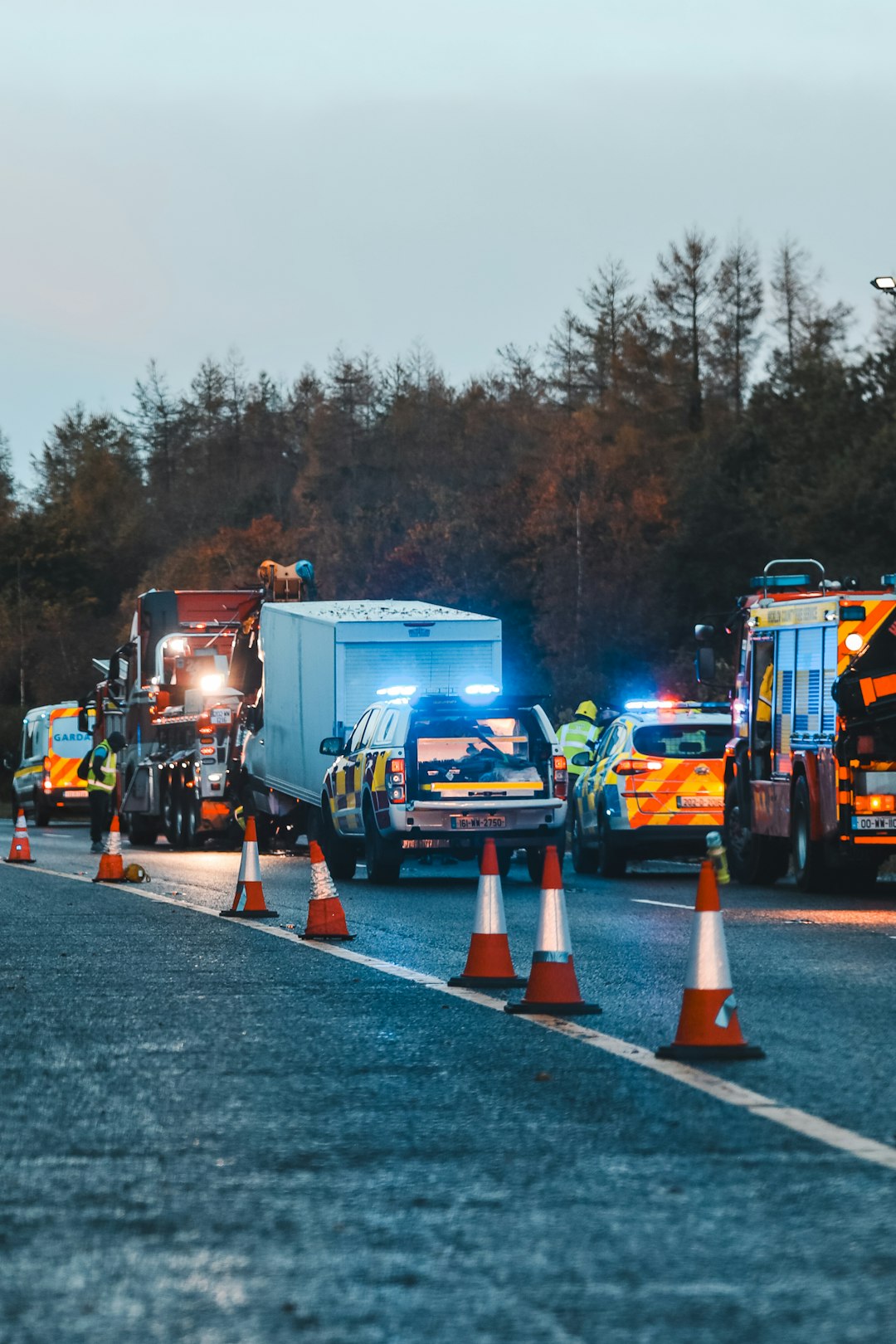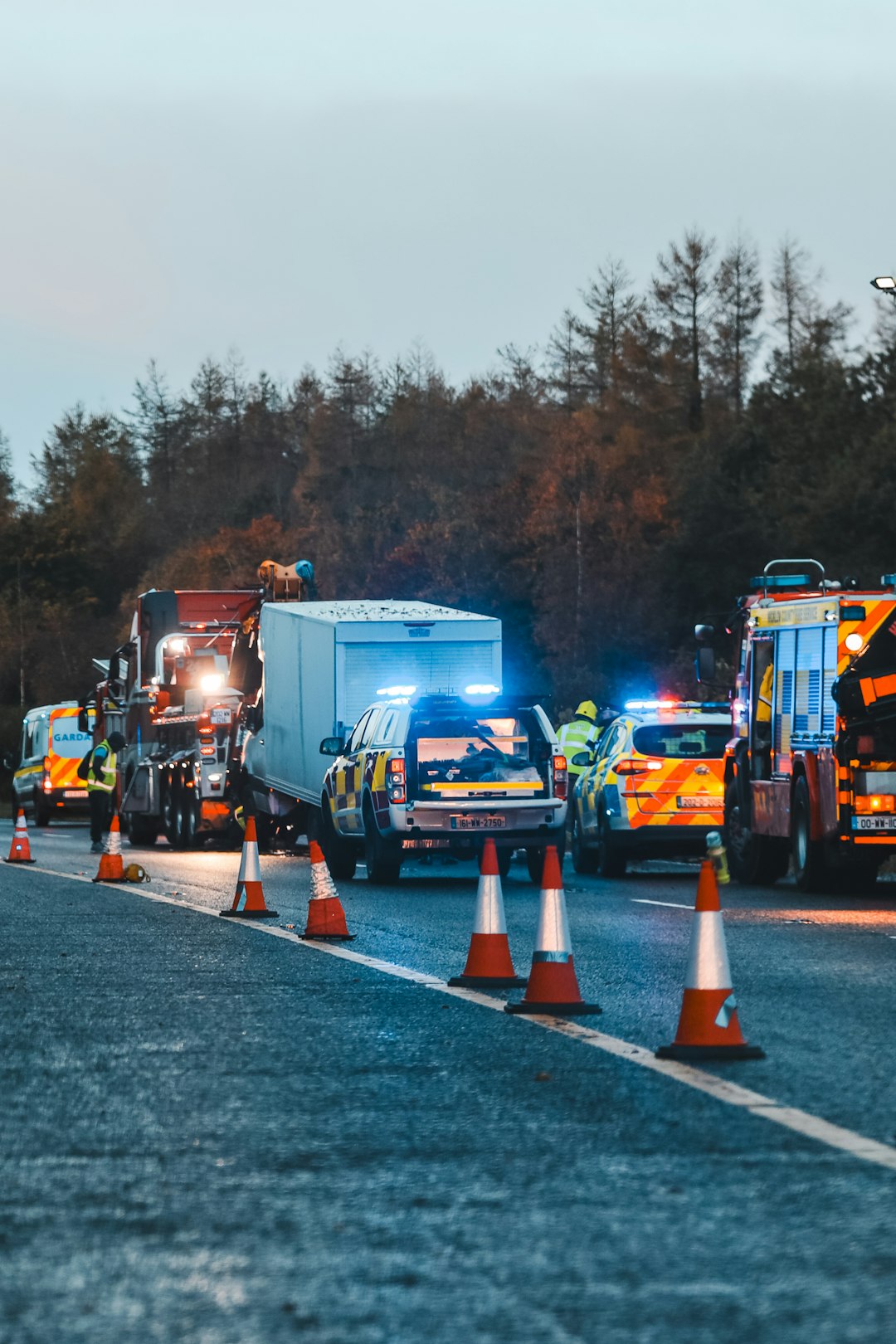

Trucking accidents are unfortunately common on the bustling streets and highways of Seattle, often resulting in severe injuries or even fatalities. These incidents can be attributed to various factors, including driver fatigue, mechanical failures, improper loading of cargo, and adverse weather conditions. Given the size and weight disparity between trucks and passenger vehicles, collisions involving trucks tend to have more catastrophic outcomes. For victims of such accidents, understanding their legal rights becomes crucial.
One pressing question that arises in the aftermath of a trucking accident is whether it is possible to sue the trucking company involved. The answer is generally yes, but the process involves several considerations and complexities that must be addressed.
Firstly, it's essential to determine liability. truck accident lawyer Seattle . In many cases, the truck driver may be at fault due to negligence such as speeding, distracted driving, or violating hours-of-service regulations. However, responsibility doesn't always end with the driver. The trucking company can also be held liable under various legal theories such as vicarious liability or direct negligence for failing to maintain their fleet properly or inadequately training their drivers.
In Seattle specifically, state laws and federal regulations governing commercial trucking further complicate matters. Washington State adheres to a comparative negligence rule which means that you can still recover damages even if you were partially at fault for the accident; however, your compensation will be reduced by your percentage of fault. Moreover, federal laws enforced by agencies like the Federal Motor Carrier Safety Administration (FMCSA) set stringent guidelines that trucking companies must follow regarding vehicle maintenance and driver work hours.
To successfully sue a trucking company after an accident in Seattle, gathering substantial evidence is imperative. This includes obtaining police reports, eyewitness statements, and electronic logging device data from the truck involved in the collision. Often expert witnesses in fields such as accident reconstruction may also be required to build a strong case.
Additionally, it's important to act promptly due to statutes of limitations which restrict how long you have to file a lawsuit following an accident. In Washington State, this period typically extends up to three years from the date of the incident.
Given these complexities, consulting with an experienced personal injury attorney who specializes in trucking accidents is highly advisable. They can navigate through intricate legal frameworks and help secure fair compensation for medical expenses, lost wages, pain and suffering among other damages.
In conclusion, while suing a trucking company after an accident in Seattle is certainly feasible under appropriate circumstances-proving liability requires thorough investigation and expert legal guidance. Understanding these aspects will enable victims and their families to make informed decisions during what is often an incredibly challenging time.
Truck accident attorney for commercial vehicle cases in Seattle
When you find yourself involved in an accident with a trucking company in Seattle, the aftermath can be overwhelming. Alongside dealing with potential injuries and property damage, you might also wonder about your legal options. Specifically, can you sue the trucking company? The answer is generally yes, but understanding the legal grounds for doing so is crucial.
Firstly, it's important to establish negligence. In any personal injury case, including those involving trucking accidents, proving negligence is key. Negligence occurs when a party fails to exercise reasonable care, resulting in harm to another person. In the context of a trucking company, this could involve several different scenarios.
One common ground for suing a trucking company is driver error. Truck drivers are expected to adhere to strict standards due to the size and potential danger posed by their vehicles. If a truck driver was speeding, driving under the influence, or violating traffic laws at the time of the accident, these actions could constitute negligence.
Another significant factor is whether the trucking company itself followed industry regulations and standards. For instance, federal law mandates specific hours-of-service rules designed to prevent driver fatigue. If it's discovered that a trucking company encouraged or failed to prevent their drivers from exceeding these hours, they may be held liable for resulting accidents.
Maintenance issues also present another avenue for legal action. Trucks require regular maintenance checks due to their constant use and heavy loads they carry. If a mechanical failure-such as brake malfunction or tire blowout-contributed to your accident and it's found that proper maintenance could have prevented this failure, then the trucking company may be considered negligent.
In addition to these points of negligence directly associated with operation and maintenance of trucks, there are other broader aspects such as hiring practices. Trucking companies have an obligation to hire qualified drivers who meet certain safety criteria. If a company hires someone with a poor driving record or insufficient training and this lack of qualification leads directly to an accident, this could be another valid reason for suing.
It's also worth mentioning cargo-related issues as potential grounds for litigation. Sometimes accidents occur because cargo wasn't properly loaded or secured-issues that fall under the responsibility of both drivers and their employers.
Once you identify potential grounds for suing based on negligence or regulatory violations by either the driver or the company itself-or both-the next step involves gathering evidence such as police reports, witness statements, and possibly expert testimonies related to vehicle maintenance or driving standards.
Navigating through all these complexities often requires professional guidance from experienced attorneys specializing in personal injury law in Seattle who understand both state-specific nuances and federal regulations governing commercial vehicles.
In conclusion, while being involved in an accident with a truck can lead one into complicated territory filled with multiple layers of accountability-from individual driver actions right up through corporate policies-there are indeed clear paths available toward seeking justice through legal action against a negligent trucking company. By understanding various grounds on which such lawsuits typically rest-whether they stem from direct operational failures like speeding or deeper systemic issues like inadequate training-you'll be better prepared not only emotionally but legally as well should you need pursue compensation following an unfortunate incident on Seattle's roads.
Navigating the labyrinth of Washington State's trucking laws and regulations can be daunting, especially in the aftermath of a truck accident.. At the heart of this complex legal terrain lies the role of a Seattle truck accident lawyer, whose expertise becomes indispensable for those seeking justice and compensation. Truck accidents often result in severe injuries and significant property damage due to the sheer size and weight of commercial trucks.

Posted by on 2024-09-16
When faced with the aftermath of a truck accident in Seattle, finding affordable legal representation can be a daunting task.. Legal services often come with high price tags, but there are ways to navigate this terrain without breaking the bank.

Posted by on 2024-09-16
Navigating the aftermath of a truck accident can be a daunting experience, especially when it comes to filing a claim.. A Seattle truck accident lawyer can guide you through this intricate process, ensuring that you pursue the right steps to secure fair compensation.

Posted by on 2024-09-16
Navigating the aftermath of a truck accident can be an overwhelming and complex journey, particularly when you're facing physical injuries, emotional distress, and financial burdens.. One of the primary concerns for victims in such situations is how to maximize their settlement with legal assistance.

Posted by on 2024-09-16
When facing the aftermath of a truck accident in Seattle, finding the best lawyer to represent your case can make a significant difference in the outcome.. Truck accidents often result in severe injuries and substantial financial losses, making it crucial to have an experienced and reliable attorney by your side.

Posted by on 2024-09-16
Determining Liability in Trucking Accidents: Can I Sue a Trucking Company After an Accident in Seattle?
Trucking accidents can be catastrophic, often resulting in severe injuries or even fatalities. If you find yourself involved in such an accident in Seattle, one of the pressing questions on your mind may be whether you can sue the trucking company for damages. Understanding how liability is determined in these cases is critical to making informed decisions about legal action.
Liability in trucking accidents is generally more complex than in regular car crashes due to the multiple parties involved and the extensive regulations governing commercial trucking. To determine who is at fault, one must consider various factors, including driver error, mechanical failures, and compliance with federal and state regulations.
One of the primary entities that could be held liable is the truck driver. Driver negligence can take many forms, from distracted driving and speeding to driving under the influence or violating hours-of-service regulations designed to prevent fatigue. If it's established that the truck driver was negligent and this negligence contributed to the accident, both the driver and their employer could be held accountable.
However, blaming solely the truck driver often doesn't paint the full picture. The trucking company itself may bear significant responsibility. Companies are required to maintain their fleets properly and ensure that their drivers are adequately trained and compliant with safety standards. Failure to do so can make them liable for accidents caused by mechanical failures or unqualified drivers.
Moreover, trucking companies are bound by "vicarious liability," meaning they can be held legally responsible for their employees' actions while on duty. This principle ensures that companies cannot shirk responsibility simply by attributing fault solely to individual drivers.
In some cases, third parties like manufacturers of faulty truck parts or cargo loading companies might also share liability if it's proven that their negligence played a role in causing the accident.
To successfully sue a trucking company after an accident in Seattle, you'll need substantial evidence supporting your claim. This often involves gathering police reports, eyewitness testimonies, maintenance records, hours-of-service logs, and employing expert witnesses who can reconstruct the accident scene or testify on regulatory violations.
Washington State follows a comparative negligence rule where each party's degree of fault impacts their respective liabilities. Even if you were partially at fault for the accident, you might still recover damages; however, your compensation would be reduced by your percentage of fault.
Given these complexities, consulting with an experienced personal injury attorney specializing in trucking accidents is crucial. They can help navigate through intricate legal landscapes, gather necessary evidence, negotiate with insurance companies on your behalf, and represent you vigorously if your case goes to court.
In conclusion, determining liability after a trucking accident involves examining various aspects such as driver behavior, company practices, vehicle maintenance records-and sometimes even third-party actions-to build a robust case against those responsible. While suing a trucking company in Seattle poses its challenges due to intricate laws and regulations governing commercial transportation industries; with adequate legal guidance and thorough investigation into every facet surrounding your case-you stand a fair chance at securing justice and rightful compensation for any harm endured through no fault of your own.

Experiencing a trucking accident can be an overwhelming and traumatic event, especially in a bustling city like Seattle. The sheer size and weight of commercial trucks often result in severe damage and catastrophic injuries when involved in collisions. If you find yourself in such an unfortunate situation, knowing the immediate steps to take can not only ensure your safety but also strengthen your potential legal case against the trucking company responsible.
First and foremost, your priority should be ensuring everyone's safety. Check yourself and others involved for injuries. If anyone is hurt, call 911 immediately to get medical assistance on the scene. Even if you feel fine initially, it's crucial to seek medical attention as some injuries may not manifest symptoms right away. Prompt medical documentation will also serve as vital evidence if you decide to sue the trucking company.
Once you've ensured everyone's safety, report the accident to local law enforcement. In Seattle, this means calling the Seattle Police Department or Washington State Patrol, depending on where the accident occurred. An official police report can provide an unbiased account of what happened and is indispensable for legal proceedings.
While waiting for authorities to arrive, gather as much information as possible from all parties involved in the accident. This includes collecting names, contact details, driver's license numbers, insurance information, and vehicle registration numbers. If there are witnesses at the scene, ask for their contact information as well; their statements could be invaluable later on.
Documenting the scene thoroughly can significantly impact your case against a trucking company. Use your phone to take photos or videos of everything-vehicle damage, road conditions, traffic signs or signals nearby, skid marks on the road, and any visible injuries you or others might have sustained. These visual records provide concrete evidence that can bolster your claims.
When interacting with drivers or witnesses at the scene, be mindful of what you say. Avoid admitting fault or making statements that could be construed as accepting responsibility for the accident. Simple comments like I didn't see you could potentially harm your case later on.
After leaving the scene of the accident and receiving necessary medical care, consult with a qualified personal injury attorney experienced in handling trucking accidents in Seattle. Trucking companies often have robust legal teams prepared to defend their interests aggressively; having skilled legal representation ensures that your rights are equally protected.
Your attorney will help you navigate complex regulations surrounding commercial vehicles and determine liability-whether it lies with the truck driver, trucking company, manufacturer of truck parts, or another entity entirely. They will also manage communication with insurance companies aiming to minimize payouts while maximizing compensation owed to you.
Finally, maintain a detailed record of all expenses related to the accident-medical bills, repair costs for your vehicle or other property damage incurred during collision-as well as lost wages if you're unable to work due to injury recovery time.
In summary: prioritize safety by seeking immediate medical attention; report incident details accurately through law enforcement channels; gather comprehensive evidence at crash site without discussing fault; engage specialized legal counsel promptly post-accident; meticulously document all associated costs stemming from collision aftermath.. By following these steps diligently after experiencing a trucking accident in Seattle ,you place yourself better positioned pursue rightful justice against culpable parties thus facilitating smoother path towards recovering deserved compensation amidst challenging circumstances.
Sure, here's an essay on the Evidence Needed to Support Your Claim for the topic "Can I sue a trucking company after an accident in Seattle?"
In the bustling city of Seattle, where traffic congestion is often a daily challenge, accidents involving large commercial trucks can be particularly devastating. If you find yourself involved in such an unfortunate incident, you might wonder whether you can sue the trucking company responsible for the accident. The answer is yes, but successfully doing so requires substantial evidence to support your claim.
First and foremost, it's crucial to establish fault. In the context of a trucking accident, fault could lie with various parties: the truck driver, the trucking company, or even a third-party maintenance provider. To prove negligence on the part of any of these entities, you'll need comprehensive evidence starting from the scene of the accident itself.
Photographs and videos taken immediately following the crash are invaluable. These visual records capture not just vehicle damage but also road conditions, weather factors, and any visible injuries sustained. This type of evidence provides an immediate snapshot that can be used to reconstruct how events unfolded.
Police reports are another cornerstone of your case. When law enforcement arrives at an accident scene in Seattle, they document their observations and may issue citations for violations like speeding or unsafe lane changes. A detailed police report can lend credence to your account and offer third-party validation that strengthens your claim.
Medical records are equally critical if you're seeking compensation for injuries sustained in the accident. Detailed documentation from healthcare providers outlines not only the severity of your injuries but also links them directly to the collision. This establishes a clear cause-and-effect relationship that is difficult for opposing attorneys to dispute.
Eyewitness testimonies add another layer of substantiation to your claim. Bystanders who saw what happened can provide objective perspectives that bolster your version of events. Collecting contact information from witnesses at the scene ensures you have access to these valuable narratives later on.
Given that commercial trucks are subject to federal regulations overseen by agencies like the Federal Motor Carrier Safety Administration (FMCSA), compliance records become essential pieces of evidence as well. These documents reveal whether or not both the driver and trucking company were adhering to mandated safety protocols at the time of your accident.
Digital data can also play a pivotal role in supporting your claim against a trucking company. Trucks today are equipped with electronic logging devices (ELDs) that record driving hours and other critical metrics. Accessing this data might demonstrate if fatigue was a factor or if there were any mechanical issues leading up to the crash.
Lastly, hiring experts such as accident reconstruction specialists or medical professionals can give further credibility to your case. These experts analyze available evidence and provide informed opinions that help clarify complex aspects for judges or jurors unfamiliar with technical details.
Suing a trucking company after an accident in Seattle involves navigating through layers of legal complexity and stringent evidentiary requirements. By meticulously gathering all relevant forms of evidence-from photographic proof and police reports to medical documentation and digital data-you significantly strengthen your position and increase your chances for successful litigation.
Taking these steps helps ensure that justice is served while providing you with much-needed compensation for damages incurred during what is undoubtedly one of life's more traumatic experiences.
When contemplating a lawsuit against a trucking company after an accident in Seattle, it's important to recognize the potential challenges that may arise. Despite the gravity of the situation and the desire for justice, navigating through legal intricacies can be daunting without proper understanding and preparation.
One significant challenge is establishing liability. Trucking accidents often involve multiple parties, including the truck driver, the trucking company, maintenance crews, and potentially even manufacturers of truck parts. Determining who is at fault requires thorough investigation and solid evidence. This complexity is exacerbated by commercial trucking regulations which are both intricate and numerous. Expertise in these regulations is essential to build a strong case.
Another hurdle lies in dealing with the trucking company's insurance. Commercial trucking companies typically have high-value insurance policies managed by adept legal teams whose primary goal is minimizing payouts. These insurers are well-versed in tactics to deflect blame or reduce compensation amounts, making it difficult for an individual to advocate effectively for their own interests without experienced legal representation.
Moreover, collecting evidence post-accident presents its own set of challenges. Critical data such as driver logs, maintenance records, and black box information from the truck must be preserved and analyzed. However, access to this evidence can be obstructed by uncooperative parties or delayed processes. Quick action is necessary to secure this information before it's lost or altered.
Legal proceedings also come with their own time constraints due to statutes of limitations. In Washington State, you generally have three years from the date of the accident to file a personal injury lawsuit. While this might seem like ample time, building a robust case involves detailed investigations, consultations with experts, and comprehensive preparations - all of which can consume significant amounts of time.
Financial considerations can't be ignored either. Lawsuits can be expensive endeavors involving costs for legal representation, expert witnesses, court fees, and more. Even if one opts for contingency fee arrangements where payment depends on winning the case, initial expenses might still pose a burden.
Lastly, emotional strain plays a critical role in pursuing litigation against a trucking company after an accident. Reliving traumatic experiences during depositions or court appearances can take a toll on one's mental health and overall well-being.
Given these potential challenges - ranging from proving liability and handling complex insurance issues to managing financial costs and emotional stress - seeking professional legal assistance becomes almost indispensable when suing a trucking company after an accident in Seattle. Skilled attorneys bring not only expertise but also strategic advantage in negotiating settlements or advocating fiercely in courtrooms.
In conclusion, while suing a trucking company following an accident can indeed lead to rightful compensation for damages suffered, it demands careful navigation through various obstacles that require both preparedness and professional support.
When involved in an accident with a commercial truck in Seattle, the aftermath can be overwhelming. Medical bills, lost wages, and emotional trauma are just the tip of the iceberg. Many victims wonder if they can sue the trucking company responsible for their distress and what compensation they might be entitled to. This essay delves into the intricacies of such lawsuits and outlines potential compensations.
First and foremost, it's crucial to understand that trucking companies often bear significant responsibility for accidents involving their vehicles. These companies must adhere to stringent federal and state regulations designed to ensure safety on the roads. When these regulations are violated or when negligence is evident, victims have a solid foundation for legal action.
In Seattle, as in other parts of Washington State, you have the right to sue a trucking company if it can be proven that their negligence contributed to the accident. Negligence might include inadequate driver training, failure to maintain vehicles properly, or pushing drivers beyond safe working hours. If any of these factors played a role in your accident, you could hold the company accountable.
The first step in pursuing a lawsuit is consulting with an experienced personal injury attorney who specializes in truck accidents. They will help gather evidence, such as police reports, eyewitness accounts, and expert testimonies, to build a strong case against the trucking company.
One of the primary concerns for victims is understanding what compensation they may be entitled to receive. The damages awarded typically fall into several categories:
Medical Expenses: Truck accidents often result in severe injuries requiring extensive medical treatment. Compensation can cover hospital stays, surgeries, physical therapy, medication costs, and any future medical expenses related to the accident.
Lost Wages: Injuries from truck accidents can prevent you from returning to work immediately or even permanently affect your ability to earn a living. Compensation can include reimbursement for past lost wages and potential future earnings impacted by your injuries.
Pain and Suffering: The physical pain and emotional distress following an accident are considerable factors in determining compensation. Courts recognize that these non-economic damages significantly impact your quality of life.
Property Damage: Your vehicle likely sustained damage or was totaled in the collision. Compensation should cover repair costs or provide reimbursement based on your vehicle's market value if it's beyond repair.
Loss of Consortium: In some cases where relationships suffer due to one's injuries-whether marital relations or familial dynamics-compensation might also address these losses.
Punitive Damages: Although less common, punitive damages may be awarded if gross negligence or malicious intent by the trucking company is demonstrated. These damages aim not only at compensating victims but also at punishing wrongdoers and deterring similar conduct in others.
It's important to note that Washington State follows comparative negligence laws; this means your compensation amount could reduce based on your degree of fault in causing the accident.
In conclusion, suing a trucking company after an accident in Seattle involves navigating complex legal terrain but holds promise for substantial compensation covering various aspects of loss suffered due to their negligence. With professional legal guidance tailored specifically towards handling truck-related incidents coupled with comprehensive evidence collection efforts-you stand poised not only receiving deserved restitution-but also contributing towards enhanced accountability measures within commercial transportation sectors thereby fostering safer driving environments collectively beneficial unto all road-users alike!
When involved in an accident with a trucking company in Seattle, the aftermath can be overwhelming. The complexities of such a situation are multifaceted, often involving extensive legal and logistical hurdles. In these circumstances, hiring an experienced attorney is not just advisable-it is essential.
Trucking accidents typically involve severe injuries and significant property damage due to the sheer size and weight of commercial trucks. This often leads to complicated insurance claims and substantial financial stakes. An experienced attorney understands the intricacies of trucking regulations, which differ significantly from those governing regular automobile accidents. For instance, federal laws mandate specific safety protocols for trucking companies, such as hours-of-service regulations for drivers and maintenance requirements for vehicles. A seasoned lawyer will know how to investigate whether any of these rules were violated, potentially strengthening your case.
Moreover, trucking companies usually have robust legal teams and insurance adjusters who aim to minimize their liability and payout. Without proper legal representation, you may find yourself at a disadvantage when negotiating settlements or presenting your case in court. An experienced attorney will help level the playing field by providing expert negotiation skills and a deep understanding of personal injury law.
Another critical aspect is evidence collection. Accidents involving commercial trucks require meticulous investigation to determine fault accurately. This could include obtaining truck driver logs, maintenance records, electronic control module data (often referred to as the "black box"), and even employing accident reconstruction experts. An experienced attorney has the resources and knowledge to gather this crucial evidence efficiently.
Additionally, there are often multiple parties involved in a trucking accident claim-ranging from the truck driver to the trucking company itself, vehicle manufacturers, or even third-party contractors responsible for loading cargo. Identifying all liable parties is essential for maximizing compensation but can be exceedingly complex without professional legal assistance.
Medical expenses following a serious truck accident can be astronomical. Beyond immediate hospital bills, victims might face long-term rehabilitation costs or permanent disability that affects their ability to work. An experienced lawyer ensures that all potential future expenses are considered when seeking compensation, so you are not left financially vulnerable down the line.
Lastly, emotional trauma should not be overlooked. Navigating through recovery while dealing with legal battles can take an enormous toll on one's mental health. Having an experienced attorney manage the legal aspects allows you more space to focus on healing physically and emotionally.
In conclusion, hiring an experienced attorney after a trucking accident in Seattle provides invaluable support during one of life's most challenging ordeals. From navigating complex regulations and gathering crucial evidence to negotiating with formidable corporate entities and ensuring comprehensive compensation-all these tasks require expertise that only seasoned professionals can offer. Therefore, securing skilled legal representation is indispensable for anyone looking to sue a trucking company after an accident in Seattle.